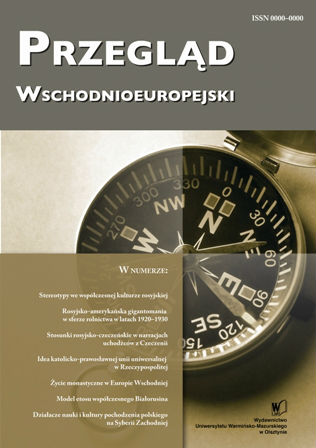Esej o tym, jak pan Jan Chryzostom Pasek z Moskwą wojował
Jan Chrysostom Pasek fighting against the Russian army... (an essay
Author(s): Wojciech KajtochSubject(s): Polish Literature
Published by: Wydawnictwo Uniwersytetu Warmińsko-Mazurskiego w Olsztynie
Keywords: Jan Chryzostom Pasek; Polish-Russian battles in the second half of XVII century; Polish-Russian relationships in the second half of XVII century
Summary/Abstract: The theme of the article concentrates on those excerpts of «Memoirs» written by Jan Chrysostom Pasek (1636-1701), where he reminisces about his adventures in the years 1660-1662. Pasek served as a soldier in hetman Czarniecki’s division and fought against the Russian army in 1660. He took part in the Battle of Polonka (Połonka) against hetman Ivan Chowański’s regiment (28.06.1660), Battle of the Basya (Basia) River (08.10.1660) against Juri Dołogoruk’s units and in other more or less important battles. In 1662 Pasek with a small unit of Polish army, escorted Russian embassy from Viazma to Warsaw. Speaking about the battles, Pasek likes to brag about his personal courage and spoils. However - the author of this article presumes - the story shows a specific character of war, where opponents do not feel hatred for to one another. The narrator of «Memoirs» fights under the law of war, but he likes the nobility, richness and braveness of the Russian army. Moreover, Pasek is not looking for any particular ideological, religious or messianic causes of the Polish-Russian war. Although he is an orthodox Catholic - Pasek does not show intolerance towards Othodox Church and does not perceive significant differences between Orthodoxy and Catholicism (but notes fundamental differences between Catholicism and Protestantism). In peacetime, when Pasek accompanies the Russian embassy, he does not take an advantage over Russians. He certainly notices fundamental social differencies and shows them as noteworthy, but at the same time he experiences the feeling of a certain brotherhood with Muscovites due to the fact that they are both Christians and represent nobility. If Pasek is considered to be the most usual example of the Polish gentry, from his memoirs it can be concluded that in the second half of XVII century there was no particular hostility towards Russians, Russian Orthodoxy and Russian power.
Journal: Przegląd Wschodnioeuropejski
- Issue Year: VI/2015
- Issue No: 1
- Page Range: 107-121
- Page Count: 25
- Language: Polish

